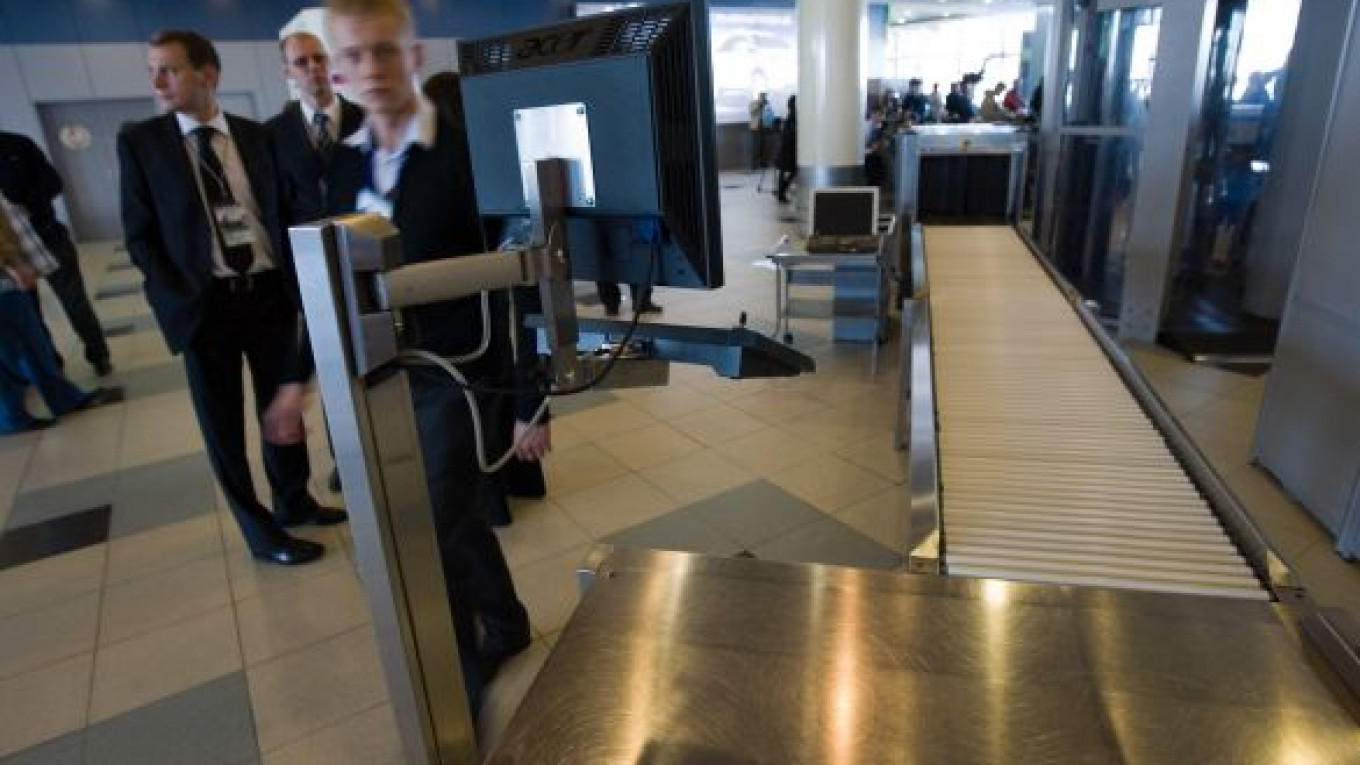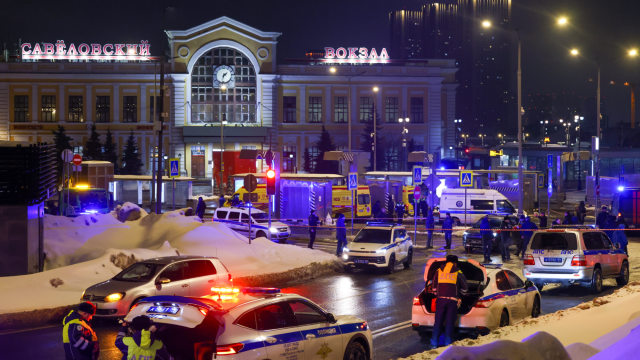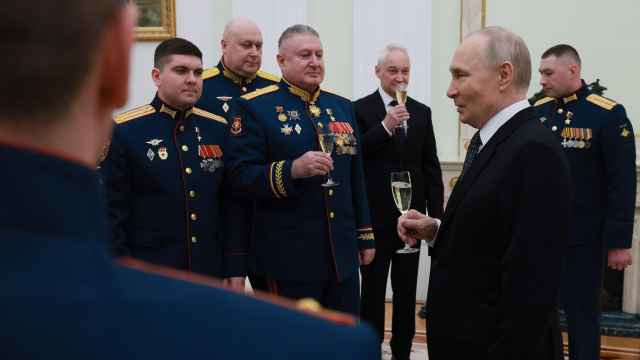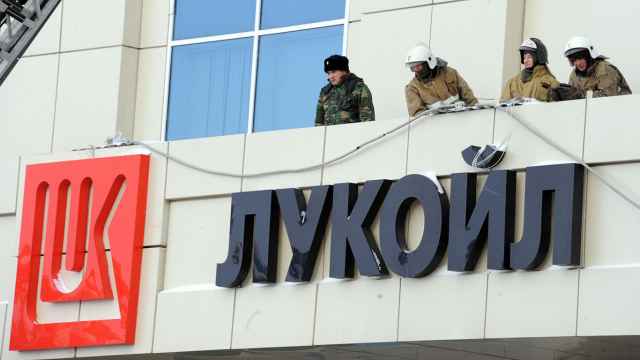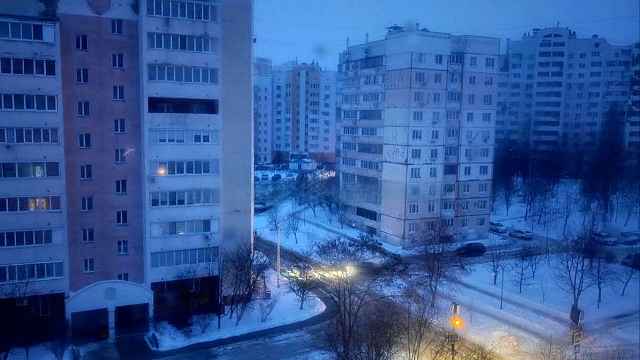Many travelers flying out of major Russian airports will soon no longer be required to remove their belts and shoes at security, and plans are afoot to relax the rules on carrying liquids on board.
But air travelers headed to the United States and other countries with stricter screening rules might still face the familiar security checks.
The new regulations are expected to reduce the amount of time people spend waiting in line to clear security by 25 percent, relieving a big headache for travelers.
“That’s nice. It will make it a little bit smoother,” said Owen Kemp, an Austrian national who has flown in and out of Russia for two decades.
The rules going into force on May 5 will no longer require air travelers to take off their belts and shoes, although there will be some exceptions, according to a Transportation Ministry order published in Rossiiskaya Gazeta on Wednesday.
Shoes with soles thicker than 1 centimeter and high heels higher than 2.5 centimeters will still have to be removed, while belts thicker than 0.5 centimeters and wider than 4 centimeters will also be subject to inspection. These rules will only be in force at “large airports” for now, the newspaper said.
The rules on liquids, meanwhile, are to be relaxed in the fall, thanks to new technology that can analyze a liquid without opening the container. Currently only 0.1 liter can be brought on board an aircraft. Flammable substances such as vodka will still be banned.
Airport authorities said they were pleased that life would be made easier for passengers but expressed bewilderment about how security screeners would determine which shoes and belts were too large and must be removed.
Yelena Selyanchenkova, a spokeswoman for Domodedovo Airport, said the airport would ask the Transportation Ministry to elaborate on how the screeners should judge shoes and belts.
Transportation Ministry officials did not answer repeated phone calls Wednesday, and questions sent by fax went unanswered.
Past experience suggests that not all air travelers may benefit from the eased rules. Countries with more stringent rules can enforce tougher checks at the gate.
For example, Delta Air Lines set up a security checkpoint for weeks at its gate at Sheremetyevo Airport after a Nigerian national known as the “underwear bomber” tried to blow up a U.S. flight in late 2009.
Airline staff asked passengers to remove their shoes, whose inner linings were checked with gloved hands, and to open their carry-on bags for inspection. Liquids that failed to meet the required size were confiscated.
How the United States and other countries might respond to Russia’s new regulations was not clear.
A request for comment sent Wednesday evening to the U.S. Transportation Security Administration, or TSA, which handles U.S. airport security, was not immediately answered.
The Transportation Ministry will now notify the TSA, which will in turn instruct U.S. airlines on how they must act under the new rule, said a senior U.S. airline executive familiar with how the process works between Russia and the United States.
“If Mongolia were to tell the TSA that every departing passenger has to be strip-searched, then the TSA would tell us, and we would know that we would have to deal with this if we wanted to continue to fly to and from Mongolia,” the executive said.
The revised rules will have no effect on passenger safety, said Maxim Agarkov, a former Interior Ministry official who specializes in security issues.
“I think that easing these measures is generally good,” he said. “It will not reduce the security of flights. Taking your shoes off in many different places does not really affect security at all.”
Agarkov also said the shorter waiting lines caused by the changes would leave fewer people exposed to a possible airport attack, while terrorists could find dozens of ways to target a plane despite the current rules.
The United States, Britain and other countries have been looking to ease their airport security rules, implemented after the Sept. 11, 2001, airplane attacks on the United States.
Children under 12 are now allowed to leave their shoes on at U.S. airports, and Kip Hawley, a former head of the TSA, said limits on liquids should also end.
Hawley, speaking to MSNBC television on Tuesday, the liquid restrictions were “supposed to be a temporary measure — only until we developed the software that would be able to go in the advanced X-ray machines to detect threat liquids.”
He said the software was completed in 2008, but the TSA was still debating whether travelers would be willing to stand in the long lines that would form if too many liquids falsely test positive for explosives.
A Message from The Moscow Times:
Dear readers,
We are facing unprecedented challenges. Russia's Prosecutor General's Office has designated The Moscow Times as an "undesirable" organization, criminalizing our work and putting our staff at risk of prosecution. This follows our earlier unjust labeling as a "foreign agent."
These actions are direct attempts to silence independent journalism in Russia. The authorities claim our work "discredits the decisions of the Russian leadership." We see things differently: we strive to provide accurate, unbiased reporting on Russia.
We, the journalists of The Moscow Times, refuse to be silenced. But to continue our work, we need your help.
Your support, no matter how small, makes a world of difference. If you can, please support us monthly starting from just $2. It's quick to set up, and every contribution makes a significant impact.
By supporting The Moscow Times, you're defending open, independent journalism in the face of repression. Thank you for standing with us.
Remind me later.


